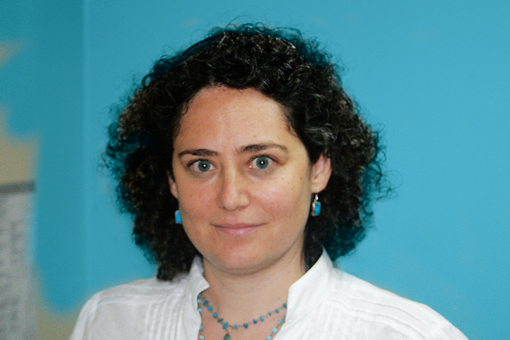As Chile has become a growing presence in the international market, high quality wine and salmon exports have become integral to its global brand. So when Chilean salmon are found to have unhealthy amounts of antibiotics in their system or a Cabernet Sauvignon becomes bitter, it threatens to damage the market for some of the country’s most important exports.
Virginia Garretón, 40, a molecular biologist and CEO of Austral Biotech S.A., is at the vanguard of efforts in Chile’s emerging biotechnology industry to develop technology that will help to maintain the profitability and high quality of these products and other food commodities.
Garretón and her staff of nine researchers at Austral Biotech S.A., the Santiago-based biotech research firm she founded in 2005 with private equity capital amounting to about
$1 million, are developing cost-effective methods to test for antibiotic levels in salmon and for a chemical that causes red wine to become bitter. The quick and inexpensive tests (Garretón compares them to at-home pregnancy tests) will allow producers to maximize profit by decreasing the time spent harvesting the salmon and, in the case of high-end wine, maintaining its taste and aroma.
The salmon kit, which uses small bio-magnets, helps farmers identify the optimum time to harvest their stock (when antibiotics in the fish are at an acceptably low level). Farmers are required to send samples of their stock to labs to be tested for antibiotics. Current methods cost around $56 per test and take two to five days of turn around. Austral Biotech’s salmon kit will cost around $16 per salmon and is used on-site.
Another kit in the works measures the quantity of the chemical 4-ethylphenol, which, in high quantities, makes red wine bitter.
“Identifying when the level is too high can make the difference between a $50 bottle of wine or a $10 one,” Garretón says. Austral Biotech is currently developing methods to eliminate excess amounts of the chemical detected by the tests.
Garretón’s innovations mirror other advances in Chile’s biotech sector, which has grown by 30 percent in the past three years, although she insists the sector is lagging behind. She hopes her company represents the beginning of a more robust biotechnology industry in the country.
“We need more companies in this field as well as advanced academic programs and professionals who can teach in them,” she says, “and I think we’re beginning to move toward that.”
With a PhD in molecular and cell biology from the Pontificia Universidad Católica in her native Santiago, Garretón founded Austral Biotech S.A. shortly after completing her post-doctorate studies at Rockefeller University in New York, where she researched plant molecular biology.
The company is off to a promising start. It is currently partnering with Universidad Santo Tomás on research and, in 2006, received $100,000 from Fundación COPEC, which funds research initiatives that maximize Chile’s natural resources. Last year, Garretón was one of five young entrepreneurs honored at the “How to Lead in the 21st Century Conference” organized by the Diario Financiero in Santiago.
But Garretón’s success has not prevented her from arguing that the Chilean biotech industry still requires a lot more investment and researchers to compete with Argentina, Brazil and Peru—all of which have more developed biotech sectors.
Garretón’s kits, expected to be available for sale in 2011, will help strengthen her argument. And so will her next major research product: developing similar early-warning kits for the swine and dairy industries.





